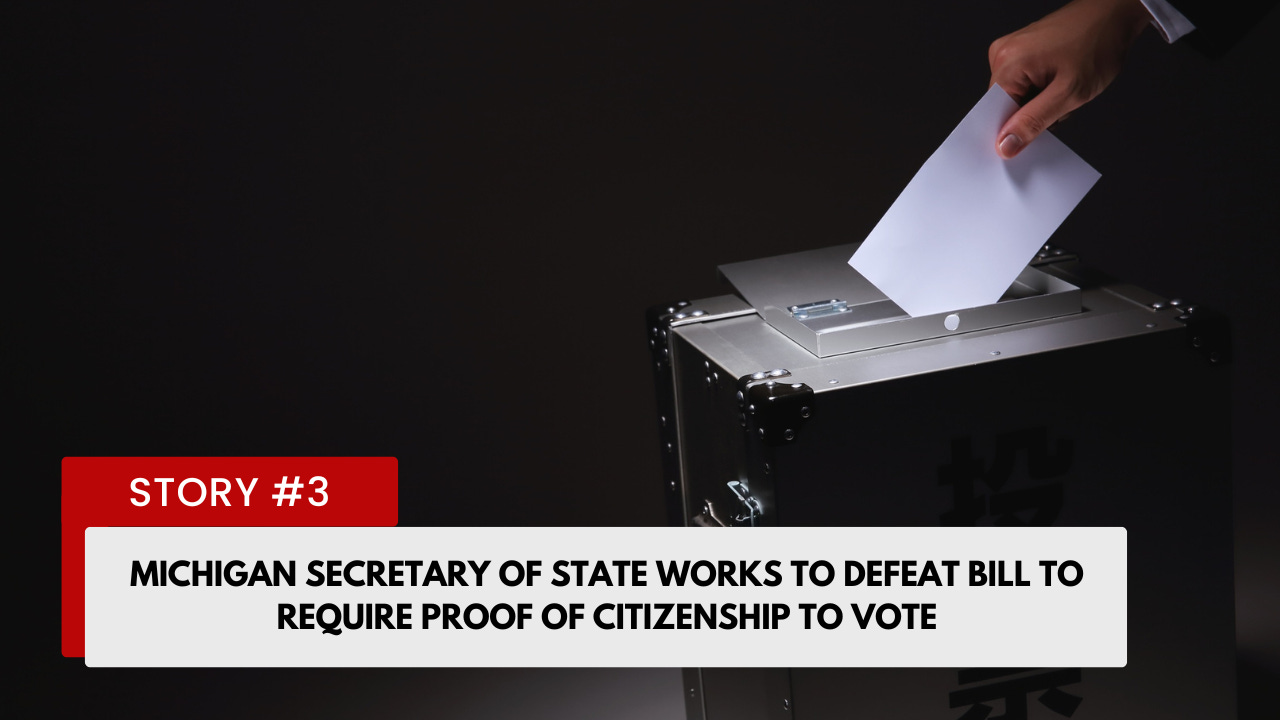

LANSING, Mich - Receiving $900,000 of taxpayer money won’t stop a Michigan electric vehicle maker from shuttering two locations and taking 188 jobs out of state.
Auburn Hills-based automotive supplier BorgWarner will close two plants of its subsidiary Akasol Inc., in Hazel Park and Warren. Layoffs will run from April 14 through July, according to a notice issued to the state under the federal WARN Act.
The factories test products for electric vehicles, including battery modules and packs, direct current fast charging equipment, and microgrid control and operations, according to a 2023 news release.
In 2019, the Michigan Strategic Fund awarded the company $2.24 million in taxpayer money for its Hazel Park plant, with the expectation it would create 224 jobs. The money would be paid out over five years as the company met milestones for creating jobs. Click here to read more.

TAMPA, FLA - Of the states most Americans are moving to, 4 of 5 have a flat or no income tax. The states losing the most residents? There again, 4 of 5 have progressive taxes. Illinois’ flat tax is an advantage it should keep.
Of the states Americans are picking for their new homes, 4 of 5 have a flat income tax or no state income tax.
Of the states losing residents, 4 of 5 have progressive state income taxes. Illinois is the exception with its flat state income tax, but some state lawmakers are again trying to change that.
The latest data from the U.S. Census Bureau shows the states attracting the most new residents via domestic migration are those with either flat income taxes or those with no income tax at all. Conversely, the states losing the most residents to other states mostly have progressive income tax structures. Click here to read more.

LANSING, Mich - Michigan Secretary of State Jocelyn Benson is doing everything she can to defeat federal legislation to require proof of citizenship to vote in federal elections.
In her second statement in as many days, Benson bemoaned the proposed Safeguard American Voter Eligibility Act in Congress as “a trick” designed to “block millions of American citizens from casting their ballot in future elections.”
“This bill is not about election security,” she claimed. “It’s a trick.”
The SAVE Act “and proposals like it are not the way forward,” Benson insisted. “Every Michigan voter should evaluate these bills with eyes wide open, with a clear understanding of what’s really at stake.”
The SAVE Act would set federal standards for voter registration requiring residents to prove their citizenship with a birth certificate or passport, but it also directs each state to “establish a process under which an applicant can provide such additional documentation” to vote if their photo ID doesn’t match a birth certificate. Click here to read more.

HORRY COUNTY, S.C. (WPDE) — As of Sunday morning, the 1200-acre fire in Carolina Forest is wreaking havoc on the community, causing evacuations for many.
The size of this fire doubled from 600 acres last night. It is the largest fire burning in the state right now, according to the South Carolina Forestry Commission.
The South Carolina Forestry Commission said that as of 3:00 p.m. on Sunday afternoon, there is no reported percentage on containment.
There are 49 SCFC resources on scene with Horry County Fire Rescue and other agencies.
Due to smoke, visibility on roads near Carolina Forest is low, and Horry County Fire Rescue said to use caution when driving. Click here to read more.

BETHEL PARK, Pa. — It’s been almost nine months since a seemingly mild-mannered 20-year-old attempted to assassinate then-Republican presidential nominee Donald Trump at a rally in Butler.
And we still have no good reason why.
Sources told The Post the FBI has obstructed efforts to solve the mystery of why Thomas Matthew Crooks, who left no manifesto, did what he did. It’s left local law enforcement as well as Crooks’ former friends, classmates and teachers frustrated.
Those who may know — Crooks’ parents, Matthew and Mary — have refused all interviews and remain in their small, three-bedroom home here, sealed off from the world like hermits. Neighbors say they only leave the house at 3 a.m. to buy groceries. Click here to read more.



















